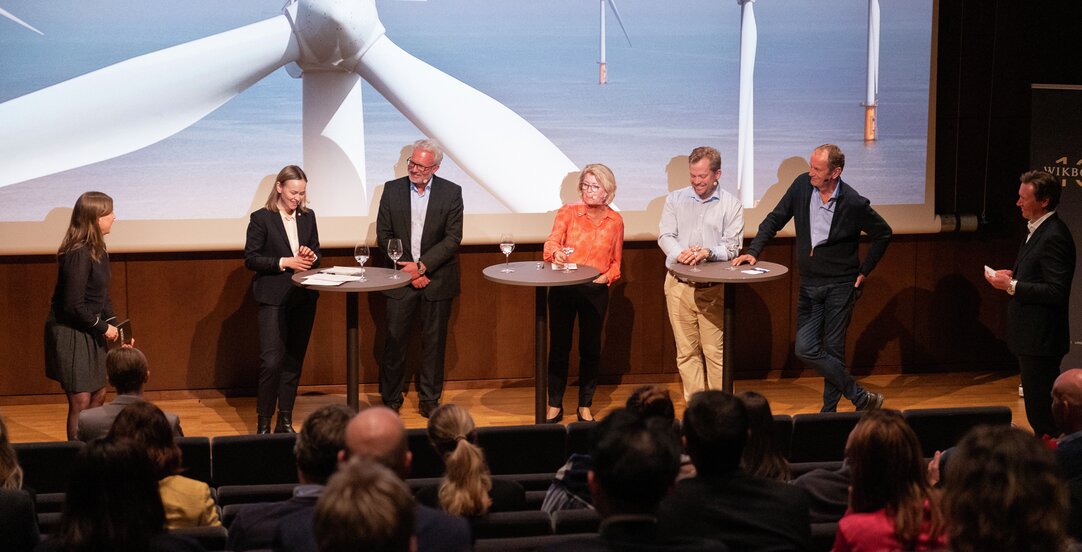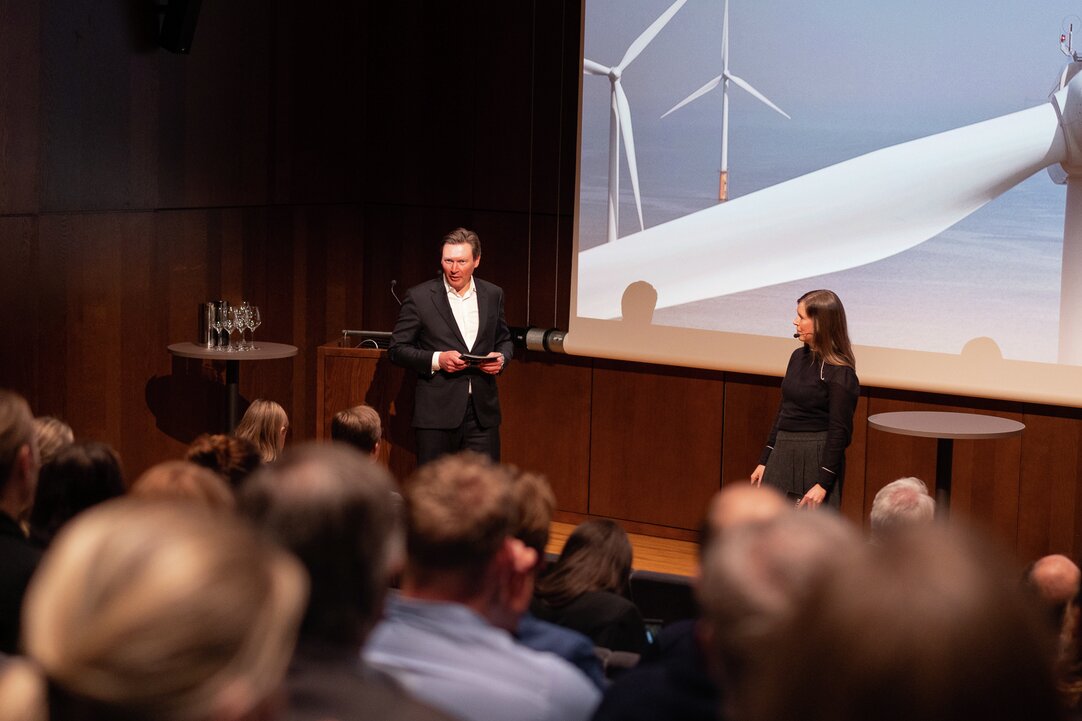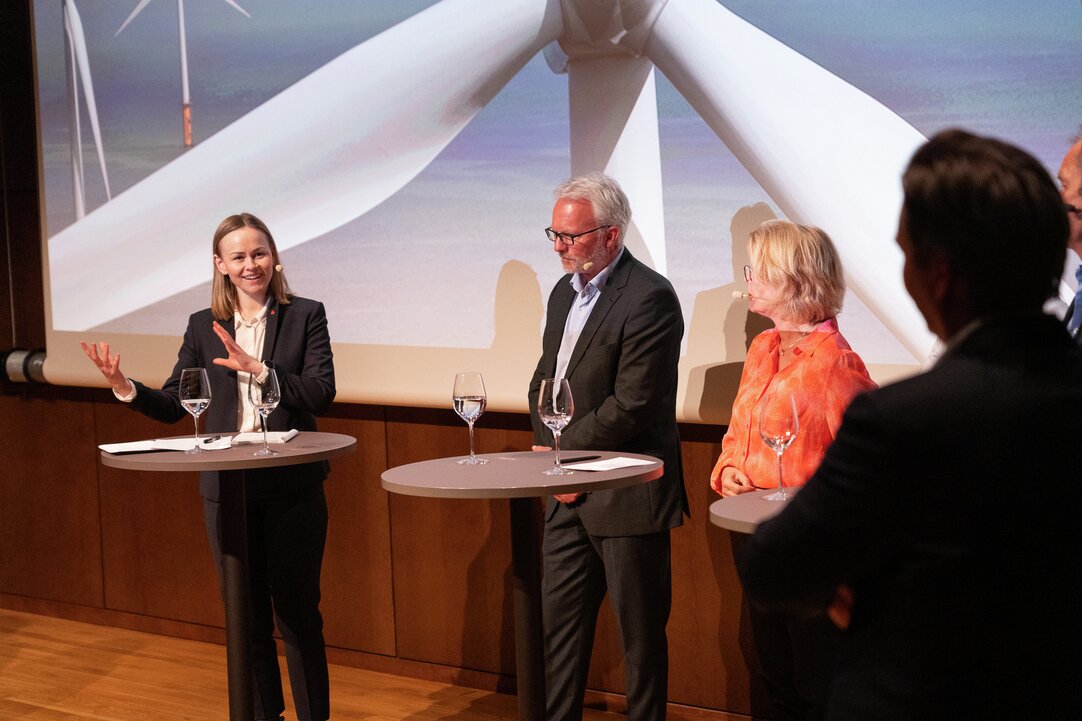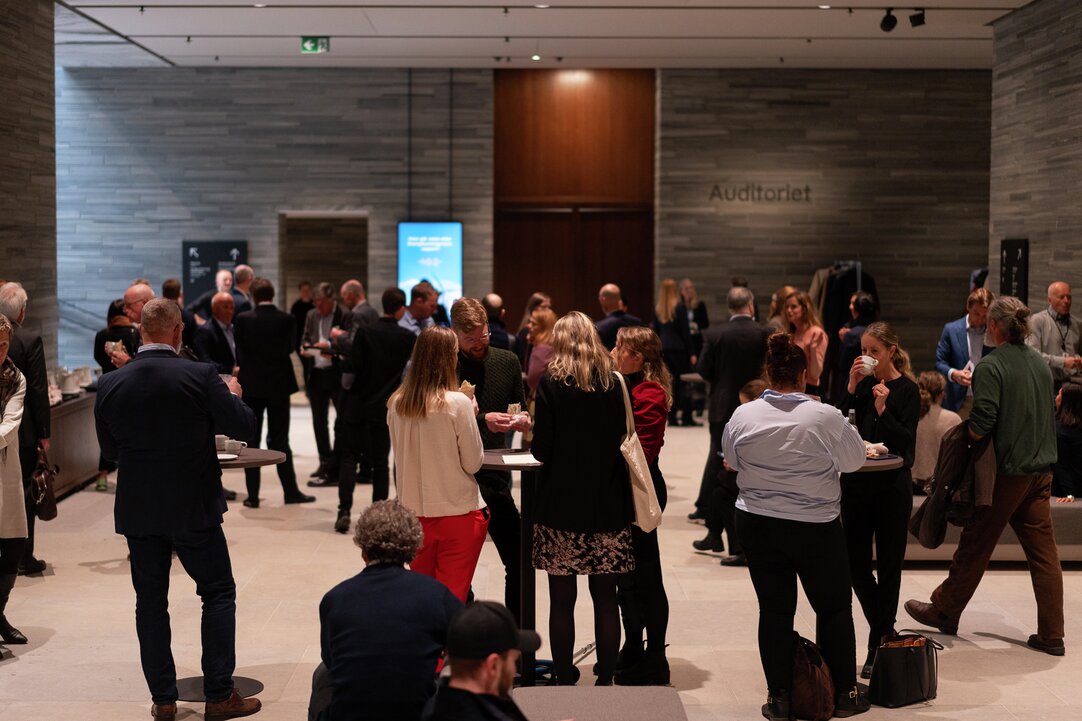Paving the way after the Energy Commission's report

The Energy Commission has asked for extraordinary measures to reach our climate targets and to ensure that ample access to renewable power still will constitute a competitive advantage for Norwegian industry. How Norway will achieve massive development of renewable energy in order to realise both emissions cut and new green industry, was the topic when we invited to a seminar at the National Museum.
The seminar started with an introduction by Energy Commission Member and economist Kjell Roland, who informed about the report he had contributed to. The Commission has, among other things, set an ambitious target of 40 TWh of new renewable energy by 2030.
Afterwards, the attendees received a status update from the Government, represented by Parliamentary Secretary Ragnhild Sjoner Syrstad from the Ministry of Climate and Environment.
– This decade is the start of the big energy transition that we are now facing. It’s a formidable task. The responsibility rests on our shoulders, we who are living today. Thus, we have to make wise choices that can stand the test of time, Syrstad initiated.
In addition to Roland and Syrstad, CEO Åslaug Haga at Fornybar Norge, CEO at Hafslund Finn Bjørn Ruyter and Deputy CEO Lars Røsæg in Yara participated in the subsequent panel discussion, led by our energy lawyers Caroline Skaar Landsværk and Tormod Ludvik Nilsen.

Must be specific
In the discussion, Roland referred to the need for changes in how we intend to make regulations, and also to strong actions that are taken in other European countries, including Germany that has decided that 2 percent of their land areas should be used for wind power.
– In Norway, where we have been very proud of the Energy Act for thirty years, such changes to the regulations will require a grief process. In order to reach the target, we must be specific about what we are going to do differently than before”, Roland said.
He is among those who do not want to reject development in waterways that until now have been protected.
CEO Åslaug Haga in Fornybar Norge expressed that Stortinget now must consider the proposals of the Energy Commission and reach a cross-political agreement on where we are going.

– We can only boost the renewable development with a broad political foundation, Haga said.
She referred to the fact that Norway has not yet committed to a clear target in new development.
– We believe 40 TWh is a good starting point, but Stortinget has not yet decided anything on this. The dilemma is then that you don't know which methods you will need. That is why we need a broad majority in Stortinget”, says Haga.
Requesting power surplus
Yara's Lars Røsæg focused on the need to present industry, climate and power as three linked aspects of the same issue – and not contradictions.
– You do not make your way as you go along, but if you go. We need to explain why green restructuring is necessary. For Yara, it is still about being able to contribute to supplying food to large parts of the world’s population," Røsæg pointed out.
Hafslund’s CEO Finn Bjørn Ruyter referred to that the target of combining a 55 per cent reduction in emissions in 2030, by increasing continental exports by 50 per cent, can be demanding.
– If we are to engage in both, we must create a public debate where it is possible to talk about this in a nuanced way,” Ruyter said.
He pointed out the need to regain a power surplus.
– This will make us an attractive place for the green industry. The renewables sector is ready to take great action, but depends on local understanding, concessions and a tax policy that does not degrade the desired investments," Ruyter said.
Decrease resistant
To the question from Tormod Ludvik Nilsen about what it will take to minimise the local resistance against the development, Ruyter replied:
– When the first wind projects in Norway arrived, they were constructed in the areas with the best wind conditions, but also where the wind farms were most visible. The same applied to hydropower in the 1970s and 1980s. In the future, we need to find areas that already have a lot of activity, and where the visibility and harmful effects are lower, Ruyter said.
In the debate, Parliamentary Secretary Syrstad emphasised that we must not build down nature when we build renewable energy, as this will result in reduced emissions in sectors covered by the EU ETS would then lead to increased emissions outside of the EU ETS.

– Sometimes the best climate measure is to leave nature alone – i.e., not do anything, Syrstad says.
Many thanks to all the panelists – and to everyone who came to the National Museum! We look forward to the continuation, and to contributing and following this further.

Under the vignette «New Opportunities – Norway towards 2030», Wikborg Rein is organising professional seminars throughout our 100th anniversary, highlighting important business topics and chart the course towards 2030. The Energy Seminar on 13 April was the second 100th anniversary seminar arranged by Wikborg Rein – read more about the first seminar here: The National Museum of Public Administration with sanctions and money laundering on the agenda (wr.no)

